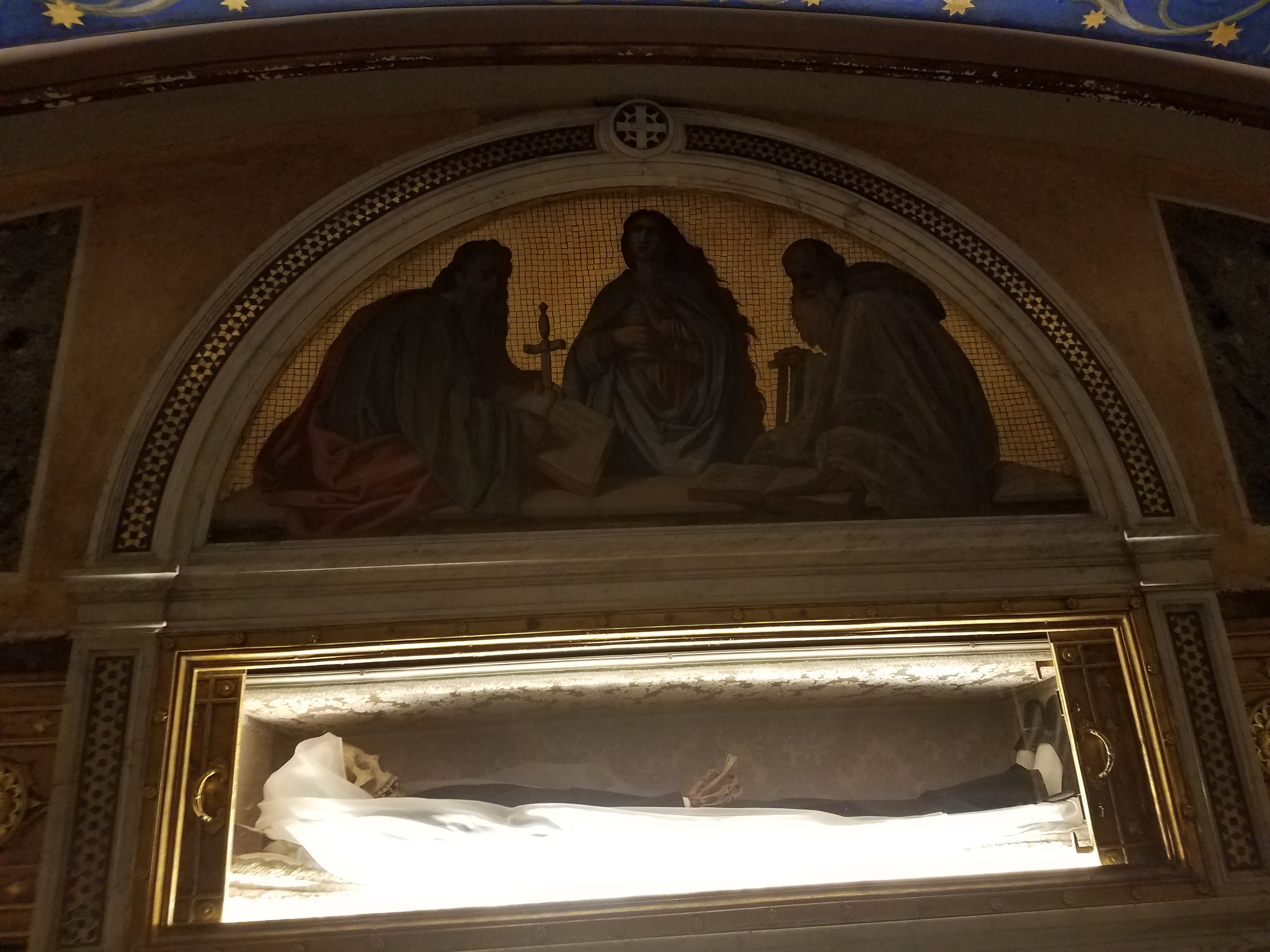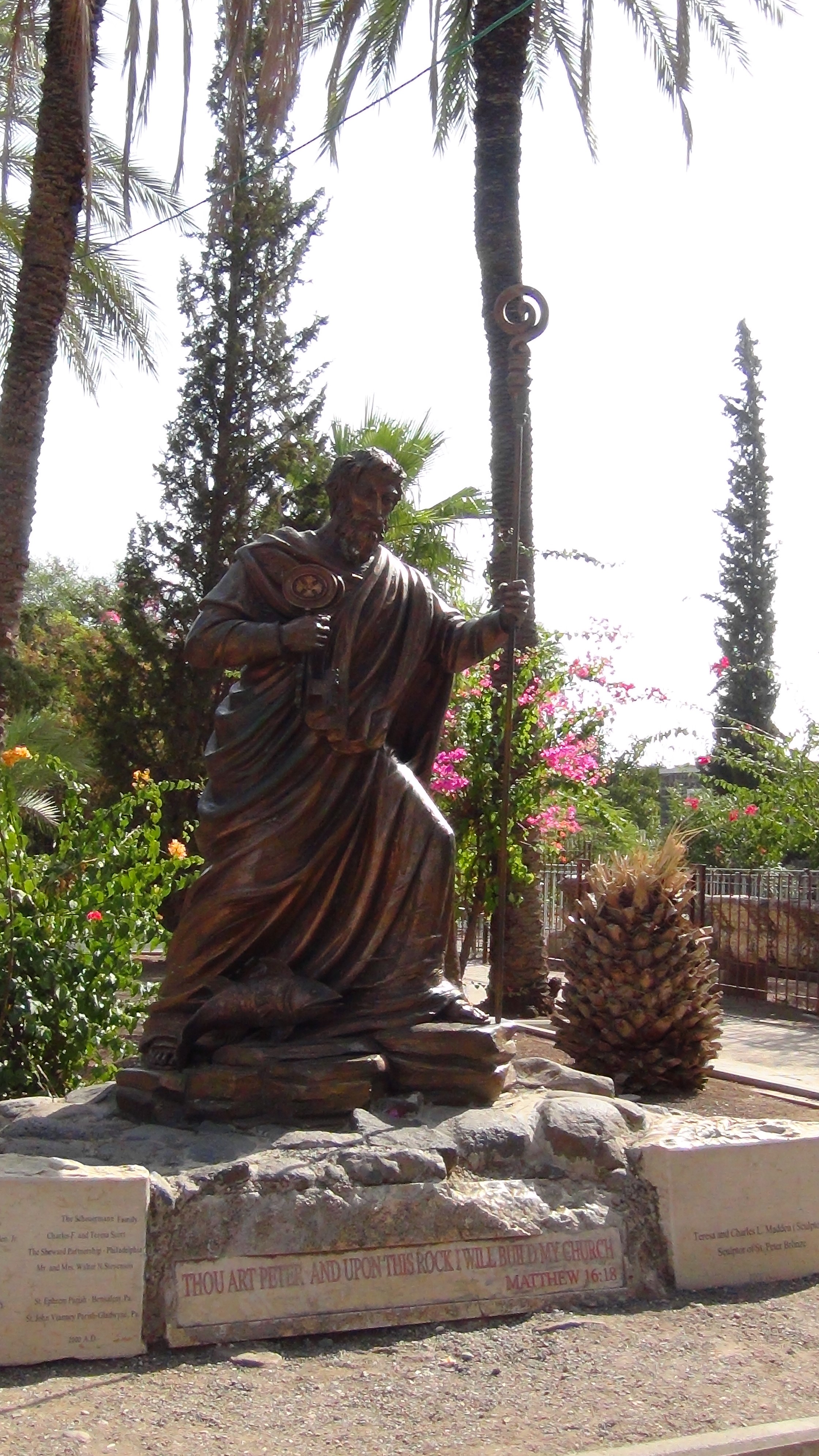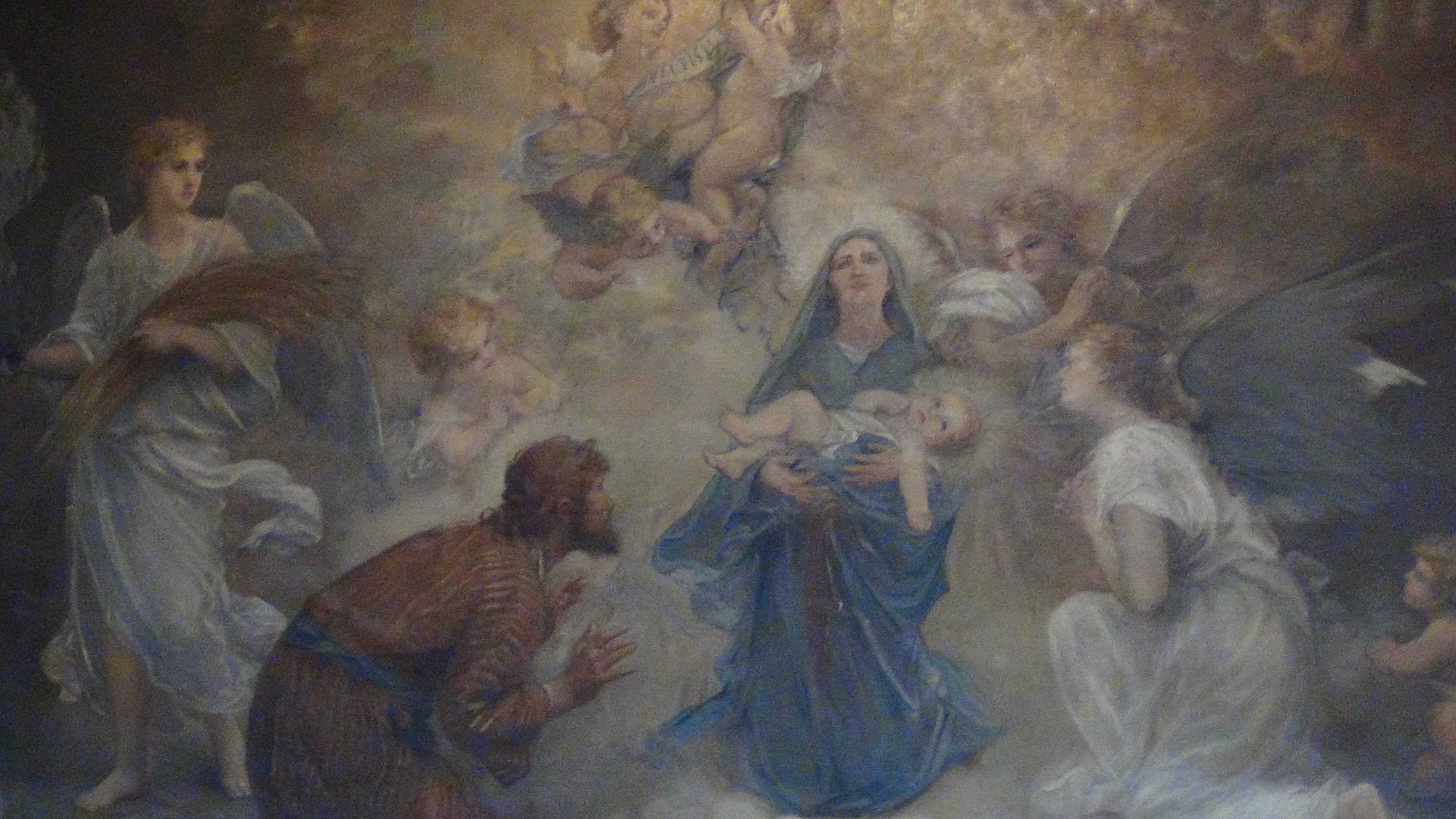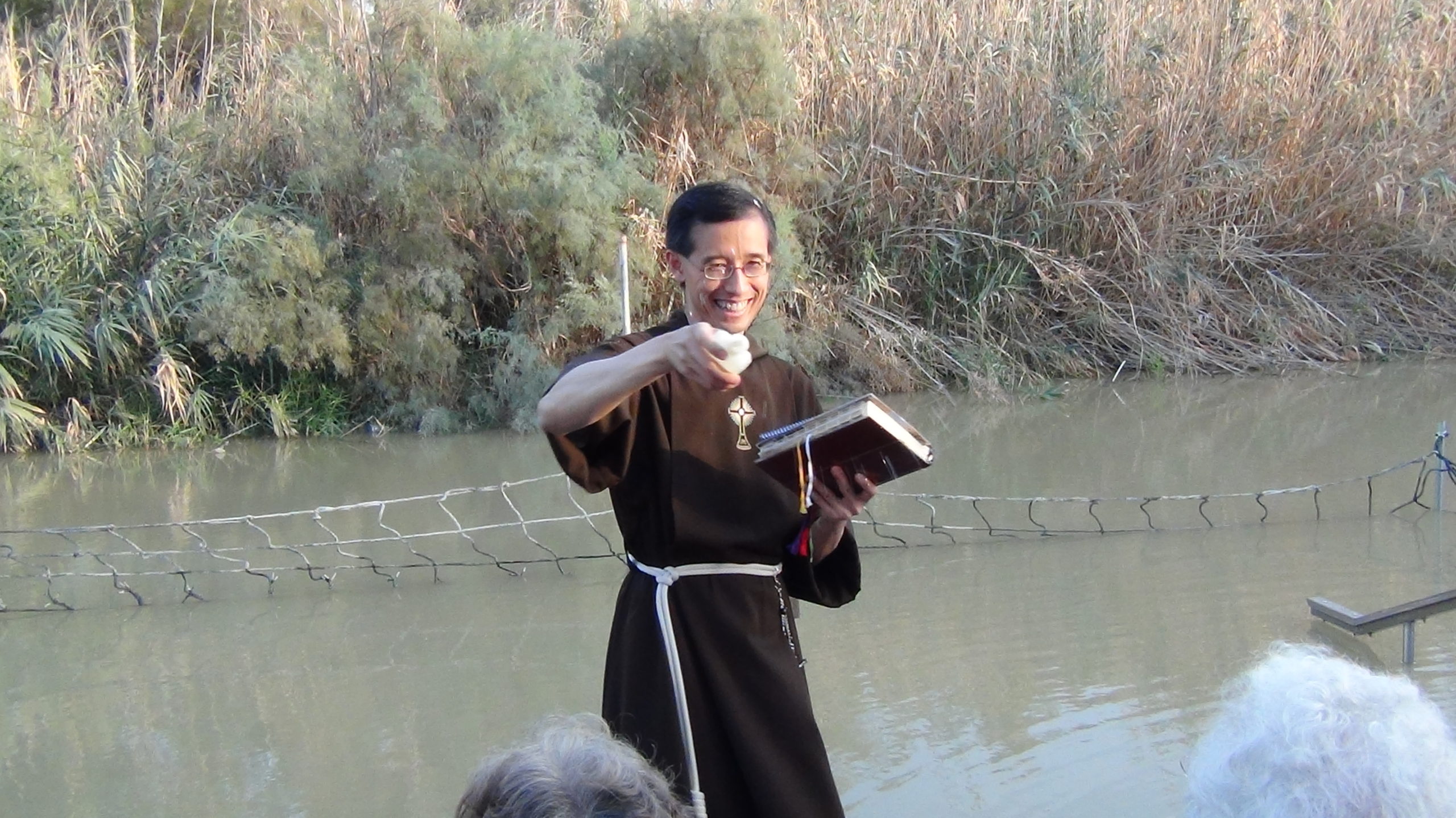Deut. 18:15-20; Ps: 95:1-2, 7-9; 1 Cor. 7:32-35; Mk 1:21-28
Listen to him “lest we die.” The “Holy one of God” has come, he is Jesus of Nazareth, and his voice is proclaimed today in the scriptures. To him we listen “lest we die”. We shall listen to no other voice and the voice that falsely speaks in his name “or in the name of other gods, he shall die”. Who are these voices of our times that use the name of the Lord in vain or speak for other gods? When the politics of government calls for the genocide of babies in abortion, or for the marriage rights of homosexuality in the name of God’s justice we have a false prophet on the path to death. When people go to a spiritualist “espiritualistas”, hand readers, or guide themselves with daily astrology and zodiac signs they follow other gods on the path to death. What voices do we govern ourselves by?
Have you ever taken care of a child that is not your own and you give it a command only to have the child respond, “You are not the boss of me”? Children learn to listen to their parents but they also are cautioned to not to listen to the voice of a stranger. Last week we heard how the great city of Nineveh listened to the prophet Jonah and repented and today we have something greater than Jonah and Moses, we have Jesus, “the Holy one of God”. He is “of” God not sent “from” God. Being of God, he carries the authority and power of God the Father as the Son in the Spirit as one. Are we ready to allow him to be “the boss of us?” The “boss” has given us a command, to listen to the voice of Jesus inscribed in our hearts and in his word.
Are we ready to be obedient to his command? His is the voice that can remove any unclean spirits from our lives. In the gospel today, Jesus enters the synagogue and there was “a man with unclean spirit”. This man was not out trying to sin in the world. He had come on the sabbath to the synagogue following the Jewish custom. He may have appeared as any other ordinary citizen. He could be any of us today following the church customs yet living in bondage with a spirit of sin that possess us. The voice of the spirit speaking the words “Have you come to destroy us? I know who you are–the Holy one of God!” does not come from the man himself but from the evil one that has taken possession of him. When we think of exorcism, we envision something radical like the movie the “Exorcist”. The first exorcism of a Christian is in baptism to remove our original sin and allow the Holy Spirit to enter as a new birth in Christ. The voice of evil is disguised in the ordinary of life.
The Holy one of God comes with the promise of a kingdom, a kingdom in the spirit of God to remove the spirit of evil that prowls about the world seeking souls to enter. What spirit has us in bondage that needs to release us and set us free? Do we feel persecuted sometimes with a restlessness within our minds, hearts, and souls knowing that those thoughts, feelings, and compulsions are not rational or based on our circumstances yet we find ourselves overwhelmed seeking to be set free from within? We need to come to Jesus, we need prayer, and we need to receive a blessing from a priest. We need to pray a rosary to Mary and call for her intercession for she has crushed the head of the serpent and can crush the spirit that invades us.
We don’t like to think or consider that we are not in control of ourselves or that we may be struggling with something evil yet where does lust, gluttony, rage, obsessions or suicidality find itself lurking in the lives of people. Many will battle in silence, in shame, justifying their struggle as simply a human weakness, a character flaw or even a mental illness before considering that something greater may be lying within. When science fails to justify the darkness within something more powerful than the human condition may have taken possession of a soul. This is not to be confused with mental health conditions that have an organic origin from a chemical imbalance or from years of brain damage through drugs, alcohol or trauma. The church always looks to science to determine and rule-out the organic cause before considering the spiritual cause.
Jesus came to set the sinners free and heal the sick for he reminds us that the well have no need for a physician. In the same way, the evil one is not concerned with those he already possesses from their own free will. He is after those who oppose him who he yet wishes to conquer those who follow and believe in one God creator of all. The evil one seeks to destroy us from the inside where our souls are destined for eternity and he has many spiritual weapons. Jesus calls us to be vigilant not just for his coming but against the enemy. The enemy can appear as a gentle lamb, he can come into those we love and use them to attack us.
Recall how Jesus told Peter, “Get away from me Satan”. He can even impersonate the dead and falsely misguide us. We are the first line of defense in the spiritual battle for the souls of this world. We can even find ourselves fooled by an evil spirit. Yet we are not alone in the battle when we pray. When we find ourselves in a spiritual battle, we must call on the blood of Jesus, on the Holy Spirit, on the legion of angels and army of saints and always on our Blessed Mother. We can easily claim we live in a “land overshadowed by death” but the death will not overcome us nor destroy the kingdom of God already giving us his light.
In our second reading from 1st Corinthians, it reveals the Lord’s ways are not our ways in this teaching to the “adherence to the Lord”. One spouse can oppose the other when practicing their faith, coming to church, or spending time in prayer. These “anxieties” in which a married man or woman is “anxious about the things of the world” and how he or she may please their spouse is part of the sound doctrine for the call to celibacy “for the sake of propriety and adherence to the Lord without distraction” in the life of a priest or religious sister. The sacrament of marriage is not to divide us from the love of God but to unite us as one in the love of God with God as the center of both of our lives. To many marriages end in divorce because they begin with God as the “window dressing” of the wedding day and never grow beyond it.
Finally, we see in the gospel that the “people were astonished at his teaching” with authority, driving out unclean spirits. This concern with a “new teaching” caused disruption in the status quo and some even accused him of demonic possession, blasphemy and false prophecy. They plotted to destroy him for what Moses cautioned his people “lest we die” in listening to all the false prophets of the world. Who is truly the false prophet speaking to our hearts? Moses prophesied the coming of Jesus who we are to listen to against the status quo of worldly prophets whose gods are the rise up of ‘isms” to rule our lives as in Marxism, Socialism, Capitalism, and Communism that end up in narcissism. As Jesus taught the Pharisees who accuse his disciples of “doing what is unlawful to do on the sabbath…For the Son of Man is Lord of the sabbath” (Mt. 12:1-8). Let us continue to listen to him who desires “mercy not sacrifice” (Mt. 12:7). Let us allow our hearts to discern the truth already given to us in our hearts through the gift of the Holy Spirit.
In mercy, our hearts carry a gentle soul, joyfully worshiping in our faith, with childlike hope. Our hearts cannot be hardened or governed by ideologies of the world. We recall how Jesus observed the Jewish law of his inheritance yet he claimed, “Do not think that I have come to abolish the law or the prophets. I have come not to abolish but to fulfill.” (Mt. 5:17). We are called to fulfill his call for which we have been born and it comes through him who our Lord God called us to listen to him lest we die.
We do not fear the storms of evil that bring pandemics, dictatorships, tragedies or even death. We stand for mercy to defend life from conception to death. This week was the 48th March for Life largely virtual with the theme “Together Strong: Life Unites!” Our strength is from the Lord who made heaven and earth. Life unites us to listen for his voice amid all the other voices in the world through prayer, through the celebration of the Mass, through the tenets of the Church, and in his teaching inscribed in our hearts and in his word. The voice of God is for life and justice for all “lest we die”.
We do not take God for granted thinking “I am baptized so let me go on with my life” lest we die. We call out the evil one as Jesus did “Get away from me Satan”. As a child there are good guys and bad guys and the good guys always win. As we mature in our Christian faith, we recognize there is a battle between the saint and the sinner from within and the winner is? Jesus, when we call out his name. Jesus!





Recent Comments